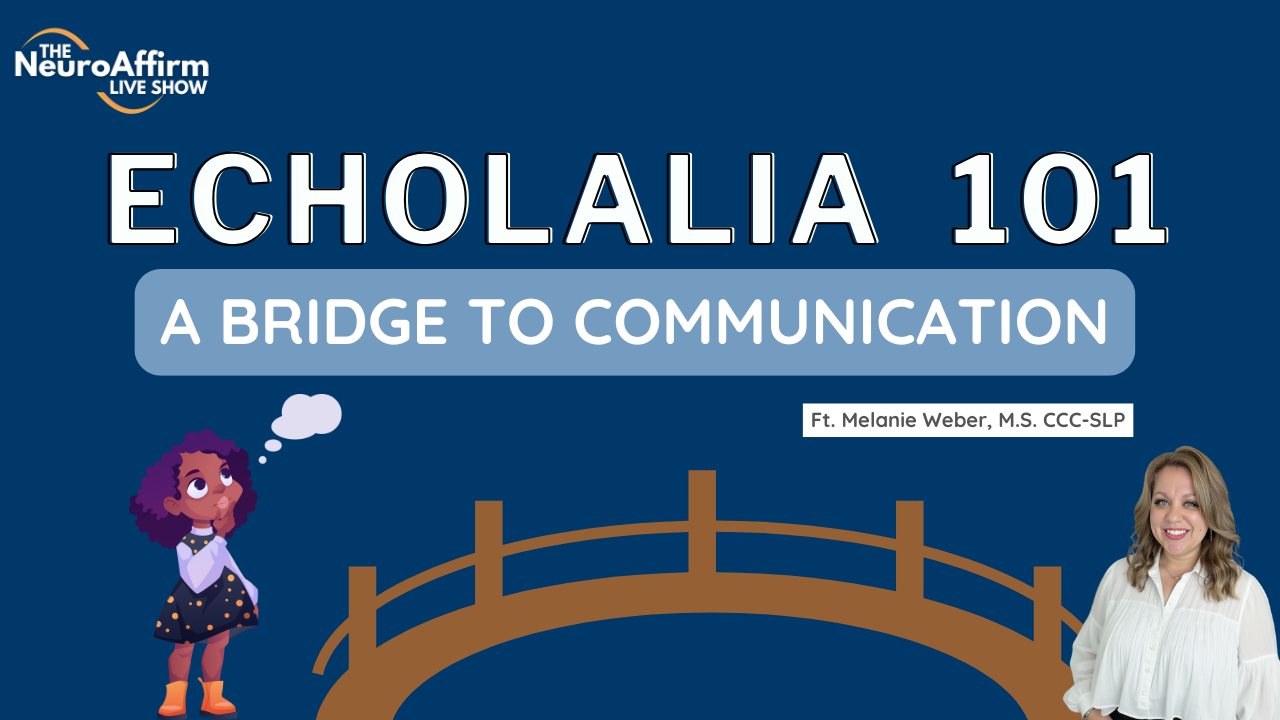Why We Shouldn't Eliminate Echolalia

What if the words we’ve been trying to quiet… are actually the ones we need to hear most?
If you’ve ever sat across from a child who repeats movie quotes all session long and thought, “What am I supposed to do with this?”... I get it. Because I’ve been there too.
But one child completely changed the way I understand communication. And his story is the reason I’ll never try to eliminate echolalia again.
When I first met Andy, he was fourteen. One session in particular, he started using the same script over and over again “vampires, Halloween, Nightmare Before Christmas…”.
At first, I thought it was random scripting. I thought he loved Halloween. Until a few sessions later his mom informed me that he actually hates Halloween.
And that stopped me in my tracks.
He wasn’t acting out a scene. He was scared.
That’s when it clicked.
Those “scripts” weren’t meaningless.
They were messages – wrapped in the language that felt safe and familiar to him.
Andy wasn’t avoiding communication. He was using the words he had to tell me exactly what he felt.
That was the day I realized: echolalia isn’t meaningless repetition. It’s communication in disguise.
For way too long, we’ve been told to reduce or redirect echolalia – to push kids toward more “original” speech.
But what if those repeated phrases are actually the most authentic form of communication we’re getting?
Let’s think about it:
When a child says, “This is my destiny!” – maybe they’re excited.
When they yell, “It’s not fair!” – maybe they’re frustrated.
When they whisper, “Vampires…” – maybe they’re afraid.
Scripts carry emotion, memory, and meaning. They’re not random… they’re rich.
They give us a window into a child’s world if we’re willing to look through it.
After working with hundreds of kids who use echolalia to communicate I know one thing for certain, echolalia isn’t random and it shouldn’t be ignored.
When scripting is restricted, communication shuts down.
When scripting is honored, communication takes off.
When we validate scripts, we validate the child.
And that’s where connection begins.
Here’s the thing… all kids start out as imitators.
Babies echo sounds. Toddlers repeat whole phrases.
It’s how language develops.
Autistic children often follow the same pattern – they just do it differently.
Instead of building from single words, they start with gestalts or full chunks of language from shows, songs, or books.
That’s Stage 1.
Then, over time, those chunks get broken down into smaller, more flexible pieces, just like any other developing communicator.
So echolalia isn’t a sign of being “behind.” It’s a sign of growth.
Remember Andy and the Nightmare Before Christmas?
That story wasn’t random.
It was how he told me he was scared.
Once I stopped trying to change his words… I started understanding his world. And that changed everything.
So the next time you hear a child echoing a line from a show or a movie, pause.
Before you redirect, listen.
Because that line might be their way of saying something deeper.
Echolalia isn’t a barrier to communication. It’s a bridge.
When we stop trying to eliminate scripts – and start listening to them – we open the door to connection, safety, and trust.
And maybe, just maybe, the words we’ve been trying to quiet…are actually the ones we need to hear most.
Want to learn more about supporting language development in Autistic children?
Catch full trainings on echolalia and Gestalt Language Processing inside the NeuroAffirm Therapy Academy – where we help SLPs bridge sensory and communication for truly neuroaffirming care.

